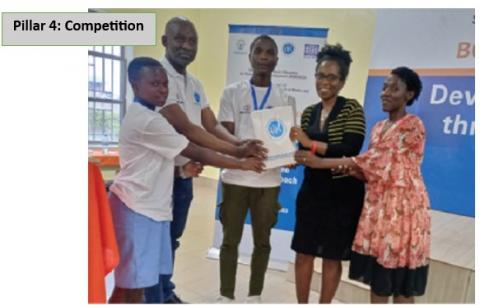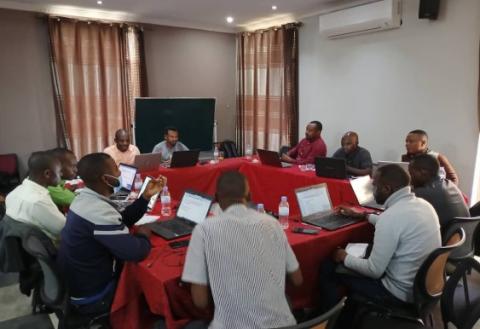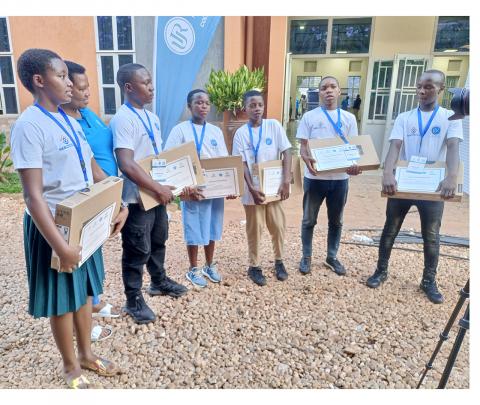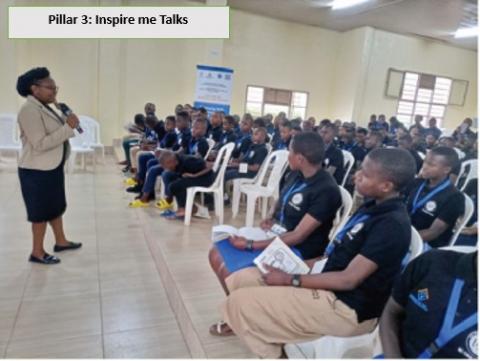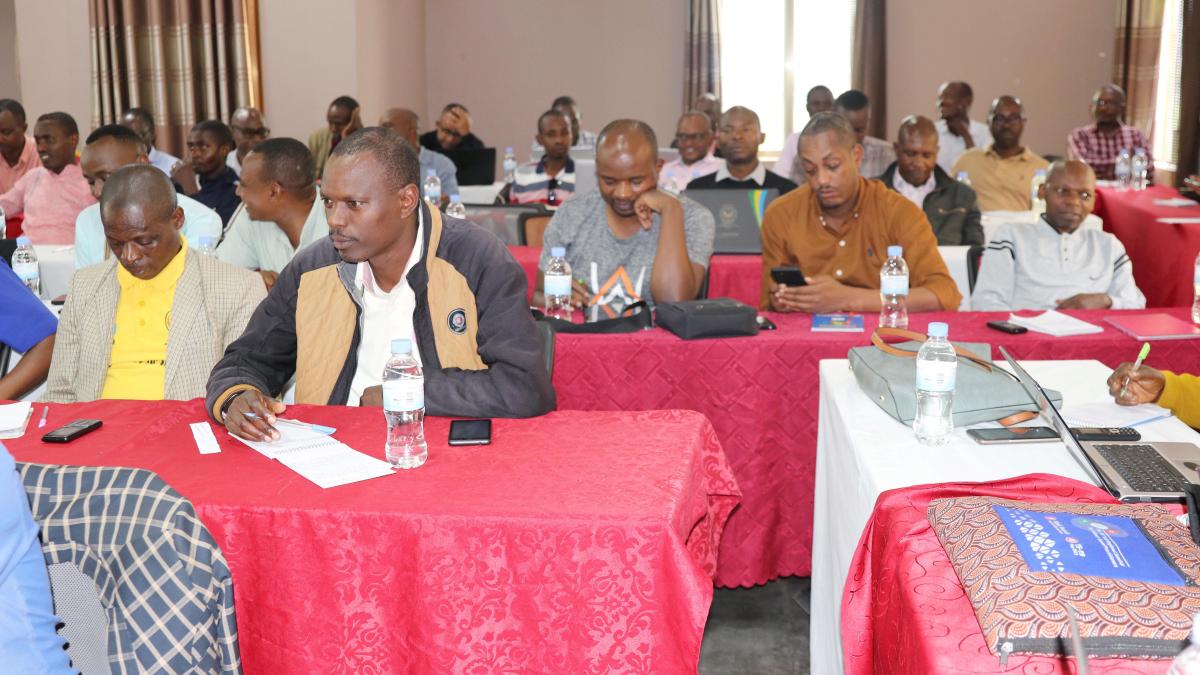
Amidst the ongoing efforts of the Rwanda Quality Basic Education for Human Capital Development project, Sub-component 1.2, a significant milestone was reached as the University of Rwanda-College of Education (UR-CE), in partnership with the Rwanda Basic Education Board (REB), organized a specialized training session in Musanze District. This comprehensive program was tailored for District Directors of Education (DDEs) and Sector Education Inspectors (SEIs) to equip these influential figures in education with the necessary tools to effectively monitor and evaluate teachers of Mathematics and Science trained under the same project.
In his presentation, Professor Pheneas Nkundabakura, the Principal Investigator and Team Leader of the Rwanda Quality Basic Education for Human Capital Development (RQBEHCD), Sub-component 1.2, underscored the historical significance and remarkable achievements of RQBEHCD Sub-component 1.2.
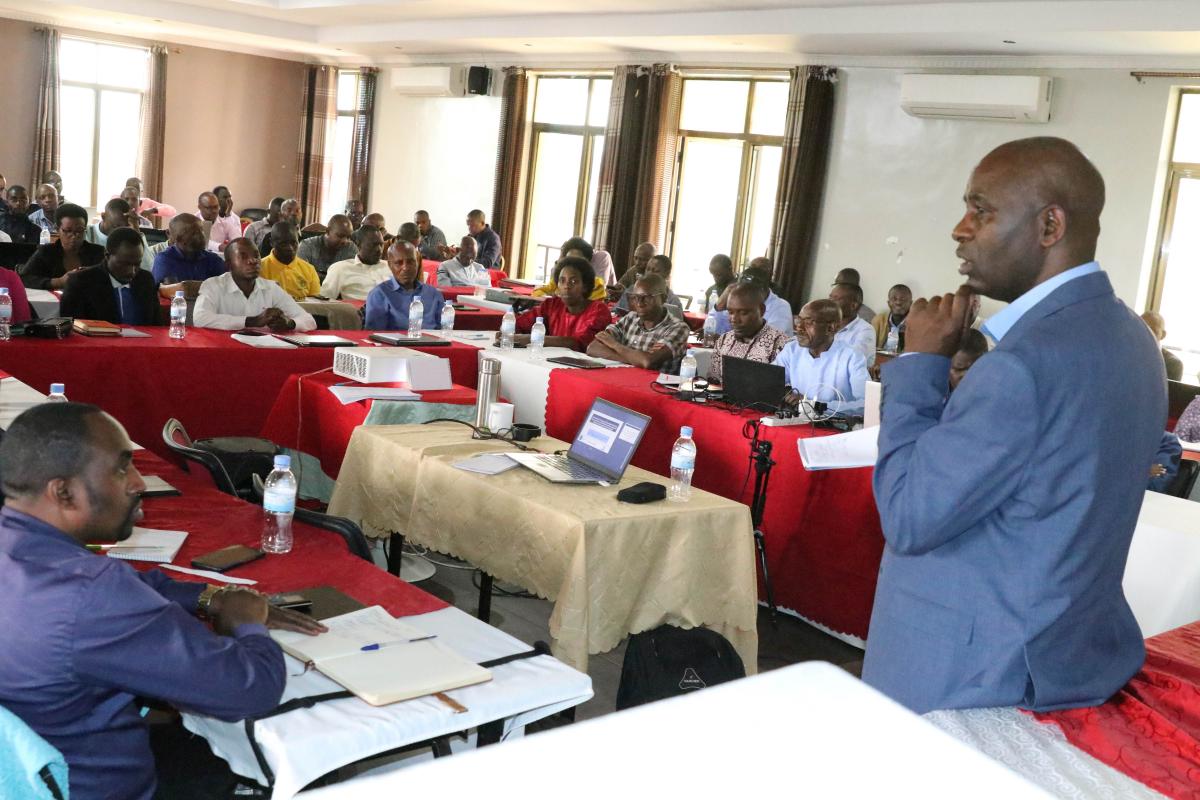
Prof Pheneas Nkundabakura, Project Investigator and team Leader, RQBEHCD Sub-component 1.2, addressing DDEs and SEIs
This initiative aims to enhance the professional development of Maths and Science teachers at the primary and lower secondary levels. Integral to the project’s framework is the modernization of instructional tools, pedagogical enhancement, and a steadfast dedication to continuous teacher development. By bolstering teacher content knowledge, refining pedagogical practices, and ensuring the availability of cutting-edge teaching materials and ICT resources, the initiative aims to revolutionize STEM education across upper primary and lower secondary levels.
Through the adoption of modernized instructional tools and the cultivation of exemplary teaching practices, the project envisions a renaissance in STEM education, poised to empower future generations of Rwandan students.
Participating District Directors of Education and Sector Education Inspectors were introduced to develop scripted lessons aligned with the Rwandan Competence-Based Curriculum (CBC) framework, leveraging open-source digital resources to enrich the teaching-learning experience. Furthermore, the project facilitated the provision of essential resources, including laptops, computers, projectors, formative assessment tools, and Mathematics and Science kits. To date, approximately 2800 Mathematics and Science teachers have undergone training of whom 2500 are slated to graduate by the end of February 2024.
Professor Nkundabakura lauded the alignment of the training with the Rwanda Competence-Based Curriculum (CBC), emphasizing its focus on fostering active student engagement. He revealed that over 2775 teachers have received training on Innovative Teaching Methods in Mathematics and Science, as well as E-learning and ICT integration, underscoring the project’s commitment to holistic educational reform.
As highlighted by Prof Nkundabakura, trained STEM teachers have gained invaluable expertise in inquiry-based models, ICT integration, and modern assessment techniques. Furthermore, UR-CE, in collaboration with REB, has developed comprehensive training modules and modernized instructional tools aimed at augmenting pedagogical content knowledge and practices in Mathematics and Science across primary and lower secondary grades (P4-S3).
In a concerted effort to equip schools with the requisite resources for educational excellence, the project has distributed Mathematics and Science kits to every school from which teachers were trained. These kits, comprising essential laboratory materials and reagents, empower educators to conduct immersive science experiments, thereby enriching the learning experience. Additionally, the provision of computers, projectors, and assessment tools underscores the project’s commitment to fostering a technologically enriched learning environment.
As Rwanda forges ahead in its quest for educational excellence, initiatives such as the Rwanda Quality Basic Education for Human Capital Development project serve as catalysts for transformative change. By empowering education leaders and educators alike, Rwanda stands poised to chart a new course toward a future defined by knowledge, innovation, and prosperity.
Story by
NTIRANDEKURA Schadrac
PRO, UR-CE
